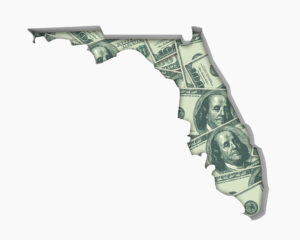FBAR Penalties Could Be Lessened Under New IRS Guidelines
According to the IRS, “if you have a financial interest in or signature authority over a foreign financial account, including a bank account, brokerage account, mutual fund, trust, or other type of foreign financial account, exceeding certain thresholds, the Bank Secrecy Act may require you to report the account yearly to the Department of Treasury by electronically filing a Financial Crimes Enforcement Network (FinCEN) 114, Report of Foreign Bank and Financial Accounts (FBAR).”
In other words, anyone who has money in a foreign bank account that exceeds $10,000 at any time during a given year will need to report that income to the IRS via an FBAR. However, recently, the IRS issued some new guidance regarding the penalties for those who don’t file an FBAR. According to reports, the IRS released a statement that noted: “For each year for which it is determined that there was a willful violation, examiners must fully develop and adequately document in the examination work papers their analysis regarding willfulness.”
For any case that involves willful violation for several years, it is up to the examiner to recommend the penalty length for each year the violation was determined to be willful. The IRS stated that typically the total penalty for the combined years under examination would not exceed ‘50 percent of the highest aggregate balance of all unreported foreign financial accounts during the years under examination.”
Meantime, an examiner can recommend more or less than the 50 percent threshold, but the total penalty cannot “exceed 100 percent of the highest aggregate balance.” There are obviously many possible scenarios and each case will be treated separately on its own merits and circumstances. The bottom line is you should still report your FBARs each year and report them on time. If you need help planning for and filing your FBAR then contact GROCO today at 1-877-CPA-2006, or by clicking here.
Where Is Your Paycheck Going?
While many of the nation’s high net-worth individuals make much of their income through capital gains, those who still collect a paycheck are doling out of cash to the IRS every time they get paid. The same is true for all taxpayers no matter what income level they fall in. In fact, according to a…
Should the IRS File Your Taxes for You?
Imagine a world where you didn’t have to file your own taxes. Of course, you can use an experienced and professional tax and accounting firm like GROCO to do your taxes for you, but what if you didn’t even have to send your tax return information to an accountant? Could that ever really happen? In…
Unstable Stock Market Could Hurt State Tax Budgets
While many feel the wealthy should be paying more in taxes, the efforts to enforce this strategy does have some consequences for state budgets. Many of the country’s wealthiest individuals hold the majority of their wealth in stocks. That means when the stock market goes down, so do the tax payments of the wealthy. In…
Florida Looking to Lure More Wealthy Taxpayers
The reports regarding many of the nation’s wealthy packing up and moving to different states in order to avoid the high taxes where they currently reside continue to mount. According to one such report, David Tepper, the president of Appaloosa Management L.P., who is the wealthiest resident of New Jersey, is in fact no longer…




